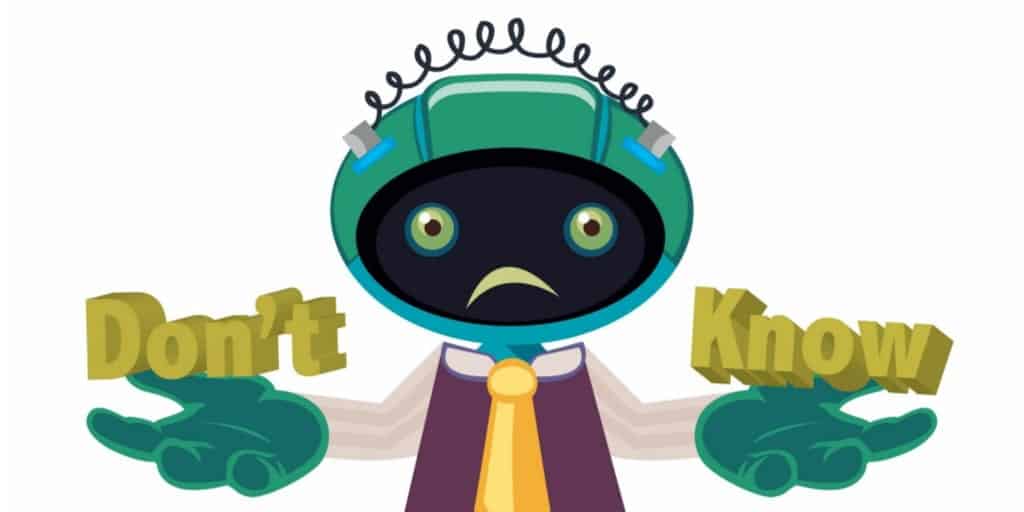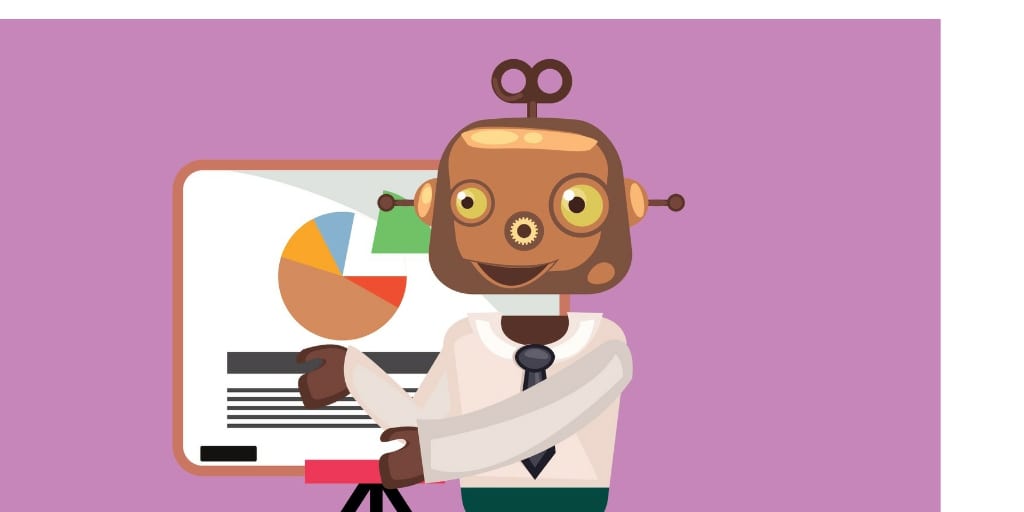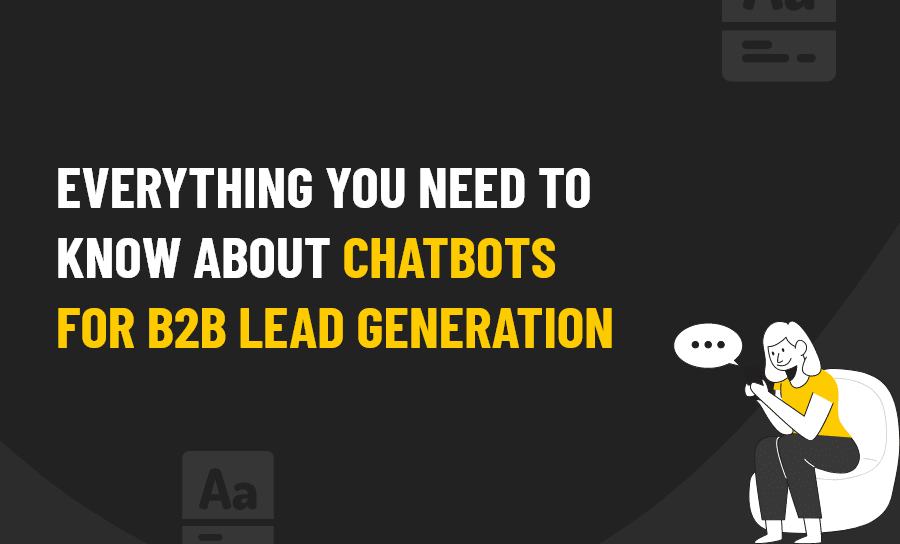What’s your honest reaction to the idea of chatbots for B2B lead generation? FOMO? Seems like everyone has them after all, so shouldn’t you? Or fear of alienating potential leads and future customers by failing to ‘present’ a human ‘face’ to them at all times? Or maybe even distrust, as to how can you be sure that artificial intelligence (AI) powered interface won’t accidentally ‘say’ the wrong thing.
These are all valid reactions, and other may people have even more. So here’s the real question; to chatbot or not to chatbot? Here we are going to take a longer look at the concept – and workings – of B2B ‘leadbots’ – chatbots for B2B lead generation – to help you determine if they might fit your B2B lead generation strategy or not.
SOME HANDY CHATBOT STATS
We know that some of you love stats. We do. So we’re going to start out here with some handy chatbot stats so you can better understand the state of their use in the B2B world right now.
- 80% of businesses expect to implement at least some chatbot automation by 2021.
- The Google search volume for the term “chatbots” has increased 19 times over the last five years.
- 67% of internet users report they have used a chatbot within the past year.
- 35% of consumers report they have made purchases via chatbots only.
- Businesses currently spend $1.3 trillion on customer service each year. Chatbots could save businesses up to 30% of those costs.
- 58% of companies currently using chatbots are B2B concerns.
- 71% of companies making use of chatbots have between 1 and 50 employees.
- The business areas most likely to benefit from chatbots are customer service (95%), sales and marketing (55%), and order processing (48%). In other words, there’s a big opportunity for B2B growth.
- Over 50% of customers expect a business to be open 24/7. This is a great demonstration of the need for some form of AI chatbot.
B2B CHATBOT BASICS
Before we dive deeper let’s make sure you understand just what we mean by chatbots for B2B lead generation in the first place.
Chatbots aren’t real robots, of course, they are software, often powered by conversational AI, designed to provide a basic simulation of a conversation between human beings. Their use is often intended to automate some of the initial contacts businesses might have with prospects and leads.
There are several different types of chatbots in common use:
Chatbots by Technology:
AI – Can analyse a visitors request and answer it. These bots, however, are still having problems understanding natural human speech – although the most expensive of them is getting much better – and may indeed ‘say’ the wrong thing.
Preprogrammed – Preprogrammed chatbots offer users a choice of several questions/ queries which they have been preprogrammed to answer.
Chatbots by Location
Chatbots are commonly utilized on:
- A main company website
- Social media
- A messenger service
- In email communications
Chatbots By Purpose
- Basic B2B lead generation
- Basic customer service
- Lead scoring
- Automation of some business processes (ie booking appointments, meeting scheduling etc.)
Chatbots by Level of Human Participation
- Full digital
- Partially digital (will cooonect a user with a human support person if needed)
Chatbots by Work Hours
- 24/7
- Only activated out of standard business hours.
As Pearl Lemon Leads is all about the power of human lead generation you might imagine we are a bit scared of chatbots, or, at least, afraid they’ll steal away business from us. However (unless we are already in it and just don’t know it) the days of the Matrix are still far off, and no chatbot has passed the Turing test yet. So no, we don’t fear the robopocalyse and in fact, embrace chatbots ourselves in various areas of our business.
But we digress. We did promise you the pros and cons of B2B chatbots, so here we go.
B2B CHATBOTS FOR LEAD GENERATION PROS
TIME SAVINGS

Since the beginning of such things, humans have created machines primarily to work more efficiently, but not always to work less. However, if programmed properly and utilized correctly B2B chatbots can actually kill both birds with one shot.
Response Time
It is the rare consumer that walks into a shop and immediately seeks out an associate to help them (other than perhaps the cashier). Usually, you won’t bother looking for one unless you can’t find the information you need, in whatever form, to complete your purchase. Most of us WILL wander an aisle or two before asking where something is.
If we do seek out someone to help us – and this applies online as well as offline – we expect an answer fast. Like thirty seconds fast.
Similarly, in the realm of B2B sales, potential buyers often have questions for sales they expect an immediate response to. Blame it on all that B2C experience if you like, but they do.
However, your salespeople are humans. They have lives. They need sleep. They need to eat. They cannot be attached to your chat 24/7. Nor should they be.
Decision-makers may be wandering around your website at any time of day or night though. You may be in the pub in London, or tucking into dinner in New York but a CEO out in LA may be halfway through their afternoon searching for just what you offer.
Or you may still be sleeping in LA but a London based customer is trying to get their morning off to a good start by finding a solution to the nagging little problem that your products or service may provide. You might receive an inquiry in a digital chat window at any time (we do for sure.)
Chatbots can provide a way to start answering those questions until a human is available to take over. They can allow you to start working on those warm leads long before the office opens, or while your staff (in reality) are five pints in at the pub or fast asleep. They allow you to be the company that serves without driving your team into early retirement via sheer exhaustion. Increased opportunities to respond may mean getting a higher conversion rate.
B2B Chatbots Can Improve Human to Human Conversations
Most people interested in your products and/or services will have standard questions to ask. It’s what the FAQ section you’ll find on many websites was created to at least begin to address. But today’s B2B decision-maker tends to be so busy they don’t want to take the time to trawl through these pages, they want answers now.
Chatbots can provide those answers. But they can also improve the quality of any resulting human-to-human sales interactions to come. By the time your prospect gets to your human salesperson, they will have got the answers to their most urgent queries, allowing your salespeople to have a more in-depth conversation on the specifics that will close the sale and create a smooth customer journey for the potential lead.
Giving an Option to Sales Speak Haters

Some people hate being sold to. They are the kind of folks who actively avoid salespeople in shops. The kind who would have hated to run into someone like Mr Humphries. They are also the kind of people that if the only option on offer to them is to give a salesperson a call then the chances are that they won’t.
And yes, many of these people are decision-makers. They know they will have to speak to a salesperson at some point, but they don’t want a big sales spiel. By offering a chatbot to help them research what you offer, and answer their initial queries then you will help these sales peak allergic decision-makers feel more comfortable in contacting a human about buying from you. So your marketing team will get a break and still be generating leads for your business.
You Don’t Need Developers
There are lots of good tool out there (in fact we’ll talk about some of them in the very near future) that serve as a good ready-made B2B chatbot. So you won’t need to hire a developer to implement one.
Go Beyond Inbound
Landing pages are a tried and tested lead generation option we often recommend to our clients when they are appropriate. They can be made more effective with the addition of B2B chatbots technology.
Here’s an example: When a browser wants to know more about what’s on offer they are directed to a conversation with a chatbot rather than just a contact form, where the answers to frequently asked questions – and whatever other information you want to offer – can be dispensed in real-time. Alternately you could make the chatbot an appointment setter.
ChatBots Don’t Have Bad Days
Bad days happen. Emergencies happen. Illness happens. Chatbots are immune to all those things. For that, we envy them, especially in these pandemic times.
B2B CHATBOT CONS
Everything has its cons, and the use of B2B chatbots for lead generation is no exception.
Designing Content Can Be Hard

B2B chatbots are cool and everything, but most of them still need to be told what to say. And it’s why most people give up on them. They buy this shiny new software not realising that it will need input from them – and quite a lot of it – in order to function properly.
Not only will you need to ‘program’ it (that may be the wrong word as you won’t be writing code, but it works for now) with the FAQs you’ll need it to answer but the fact is that you’ll need it, as far as possible, to ‘sound’ at least vaguely human.
This is where, if you need help, a great copywriter comes in. They can take your subject material and help your robot sound a little more friendly. The best chatbots operate along with the FUF principle – Friendly-Useful-Fun – a term coined by Swedish researchers some years ago whose work determined that was exactly what consumer was looking for from chatbots in the first place.
FAQs
Chatbots help improve the efficiency and effectiveness of lead generation, and one can see their use in three key ways:
- Quickly answering questions – Whereas a human lead generator may be unable to provide the client with the necessary information or take the time to give them what they’re looking for, chatbots already have all the information of your business programmed within them, allowing them to answer a client’s question as soon as they ask it.
- First impressions – Chatbots help give off the impression of an “information provider” rather than a salesperson. This makes decision-leaders more likely to engage with them, as they’re often psychologically resistant to someone trying to sell them something.
- Technical knowledge – Chatbots may become a good solution for businesses whose product and/or service requires a lot of technical knowledge that can be hard for a human to explain to clients unfamiliar with the terminology. Chatbots can provide a clear explanation of their company’s business model and handle any confusion easily.
You’ll Still Need Humans

As we mentioned, we’re not afraid of being replaced by chatbots for lead generation. Because as useful as they are they have their limitations and eventually humans have to get involved. So, if you think that adding a chatbot to your B2B website can serve as the sum total of your lead generation efforts your thinking, to be honest, is way off base.
B2B chatbots can take on some of the most basic, mundane lead generation tasks (which is why we love them actually) but they can’t so much else. You will still need a great lead generation team with a heartbeat to keep that sales pipeline full! Contact us here to add the (human) Peral Lemon Leads team to your B2B lead generation plans.





